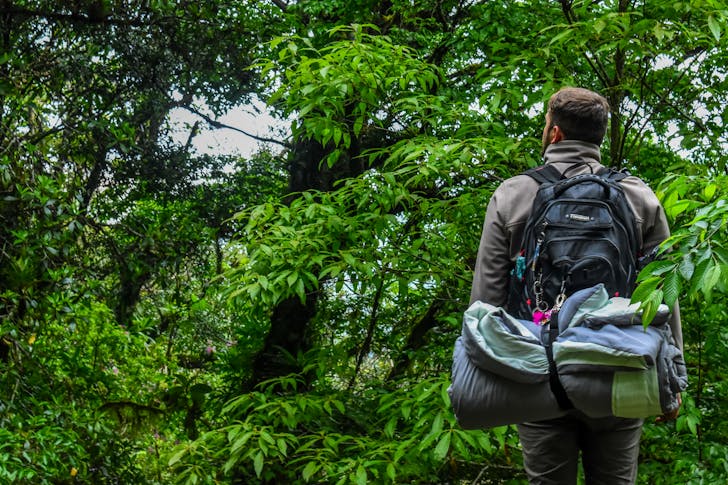As the desire for sustainable travel grows, ecotourism offers a meaningful way to explore while preserving the environment. Ecotourism fosters a deeper connection to nature, promotes conservation efforts, and supports local communities. Travelers embark on unique adventures with a smaller carbon footprint, learning to respect and protect natural ecosystems, whether in rainforests, mountains, or coastal areas.
Understanding Ecotourism and Its Mission
Ecotourism emphasizes responsible travel practices that contribute to both environmental and social goals. By choosing eco-conscious travel options, tourists reduce their impact on fragile ecosystems, support conservation initiatives, and benefit local economies. Many ecotourism companies partner with local organizations to fund projects that protect wildlife habitats, reduce pollution, and promote sustainable resource use. This collaborative approach fosters environmental awareness and long-lasting community benefits.

juan mendez | Pexels | Ecotourism emphasizes responsible travel practices that contribute to environmental and social goals.
Wildlife Conservation Safaris
Wildlife conservation safaris offer thrilling experiences in Africa, South America, and Asia. Unlike traditional safaris, conservation safaris prioritize animal welfare, aiming to protect endangered species and restore habitats. By choosing ethical operators, tourists contribute directly to anti-poaching measures and wildlife preservation. Trained guides educate guests on the importance of biodiversity, teaching them how sustainable practices can protect animals and their habitats.
Coastal Ecotourism: Marine Life Preservation
Marine-focused ecotourism allows travelers to explore diverse underwater ecosystems, from coral reefs to kelp forests. Guided diving or snorkeling tours educate tourists on marine biology and conservation challenges such as coral bleaching and overfishing. Operators often implement strict “no-touch” policies and organize beach clean-ups to maintain pristine conditions. These experiences foster a greater respect for marine life and contribute to the protection of fragile coastal environments.
Supporting Local Communities Through Ecotourism
Community-centered ecotourism programs enable visitors to experience authentic local cultures while supporting local economies. Tours often include activities like farm visits, handicraft workshops, and cooking classes, which sustain artisans and local businesses. Many of these programs are located in remote areas where tourism provides essential income for residents. This type of ecotourism enhances cultural preservation and economic empowerment for communities deeply connected to their natural surroundings.
Ecotourism in Rainforests: Preserving Biodiversity Hotspots
Rainforests house some of the world’s most diverse plant and animal species, making their preservation critical for biodiversity. Ecotourism initiatives in these regions focus on protecting native wildlife, conserving plant species, and reducing deforestation. Guided nature hikes led by local experts provide insight into forest ecosystems, illustrating how ecotourism helps sustain these rich habitats. By supporting local conservation efforts, tourists aid in the battle against habitat loss and species endangerment.
Adventure Ecotourism: Minimal Impact Activities
For thrill-seekers, adventure ecotourism provides excitement without harming natural environments. Activities like zip-lining, rock climbing, and hiking offer immersive experiences while minimizing environmental impact. Certified ecotourism providers adhere to guidelines protecting landscapes, ensuring sustainable practices such as waste reduction, minimal infrastructure, and respect for wildlife. Travelers enjoy exhilarating experiences, knowing their adventures support environmental stewardship.
Educational Programs in Ecotourism
Education plays a crucial role in ecotourism, as it raises awareness of pressing environmental challenges. Many ecotourism programs include workshops, lectures, and tours that discuss sustainable practices and conservation goals. Visitors learn how small actions—like using eco-friendly products, conserving water, and supporting local artisans—can make a significant difference. These educational experiences inspire tourists to continue sustainable practices even after their trip ends, creating a lasting positive impact.
Sustainable Accommodation in Ecotourism
Eco-lodges and green accommodations provide comfortable stays while minimizing their ecological footprint. These lodges use renewable energy, source local materials, and implement water-saving systems. Some even participate in reforestation efforts or habitat restoration projects. By choosing sustainable lodging, tourists contribute to eco-conscious businesses prioritizing the environment, providing a holistic approach to sustainable travel.
Choosing the Right Ecotourism Adventure
Selecting a responsible ecotourism provider is essential for a meaningful and ethical experience. Research companies that support conservation projects follow sustainable practices and engage with local communities. Transparent communication about environmental goals and practices is key; look for providers that employ locals, minimize waste, and protect natural areas. By choosing wisely, tourists help reinforce the industry’s commitment to sustainability.








